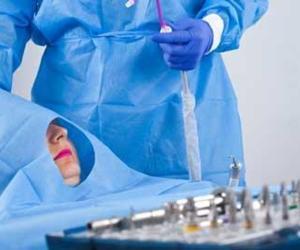“Can teeth whitening treatments damage teeth?”
I'm going to get my first whitening treatment at the end of next week. Is teeth whitening generally safe? Are there any risks for damage?
5 Answers
“What are the consequences or side effects of the teeth whitening? Are any contraindications for the procedure?”-These are the questions we frequently asked by our patients.
The most common side effect of teeth whitening is the teeth sensitivity. Also, irritations of your gums which could occur in case of improper fitting of whitening trays or poor gum retraction during in office whitening procedure. Less common side effects might be a sore throat or pain in the jaws because of long time tray use. Teeth sensitivity majorly caused by the dehydration of the teeth enamel by some whitening agents. This sensitivity is generally mild, and usually discontinues in couple of days following the completion of the whitening procedure. The best way to avoid sensitivity is to use a fluoride gel or toothpaste for sensitive teeth before and after the whitening treatment. In case of continues or severe sensitivity during or even after the whitening treatment you should contact your dentist and see him for the consultation.
Contraindications
Tooth whitening is not the best choice for you if:
Your dentist tells you that you have decayed teeth in your mouth, those decayed teeth needs to be treated before the whitening.
You have gingivitis or periodontitis - gum diseases.
You teeth have abrasions, attritions or erosions. Defects of teeth enamel as a result of aggressive brushing, teeth grinding or improper diet with excessive use of citrus fruits, carbonate drinks or if you are pregnant. The bleaching will not change the color of your fillings, crowns, or bridges.
The most common side effect of teeth whitening is the teeth sensitivity. Also, irritations of your gums which could occur in case of improper fitting of whitening trays or poor gum retraction during in office whitening procedure. Less common side effects might be a sore throat or pain in the jaws because of long time tray use. Teeth sensitivity majorly caused by the dehydration of the teeth enamel by some whitening agents. This sensitivity is generally mild, and usually discontinues in couple of days following the completion of the whitening procedure. The best way to avoid sensitivity is to use a fluoride gel or toothpaste for sensitive teeth before and after the whitening treatment. In case of continues or severe sensitivity during or even after the whitening treatment you should contact your dentist and see him for the consultation.
Contraindications
Tooth whitening is not the best choice for you if:
Your dentist tells you that you have decayed teeth in your mouth, those decayed teeth needs to be treated before the whitening.
You have gingivitis or periodontitis - gum diseases.
You teeth have abrasions, attritions or erosions. Defects of teeth enamel as a result of aggressive brushing, teeth grinding or improper diet with excessive use of citrus fruits, carbonate drinks or if you are pregnant. The bleaching will not change the color of your fillings, crowns, or bridges.
It is a very safe process yet some people can do it with no side effects and others may have sensitive areas. These areas can be slightly cold sensitive to extremely sensitive. Everyone is different, I would suggest starting slowly and increasing the frequency as you see how much or little discomfort you have.
Teeth whitening is safe if you get the ZOOM whitening. It does cause some sensitivity which is temporary and is more in females than males and it works on the stains and does not cause any damage to the teeth.
Thanks.
Thanks.
Teeth whitening is generally very safe. Most patients respond with little or no subsequent sensitivity to temperatures. For those that do, the sensitivity is usually very transient and resolves within days at most. Of course, there are always exceptions where some patients find the sensitivity to temperature changes following bleaching treatments to not be tolerable for them. This is the main reason why we suggest using at-home bleaching trays instead of the in-office whitening procedures. The patient has more control, and can tailor the bleaching process to their own needs and likes.
Good luck with your bleaching.
Good luck with your bleaching.








